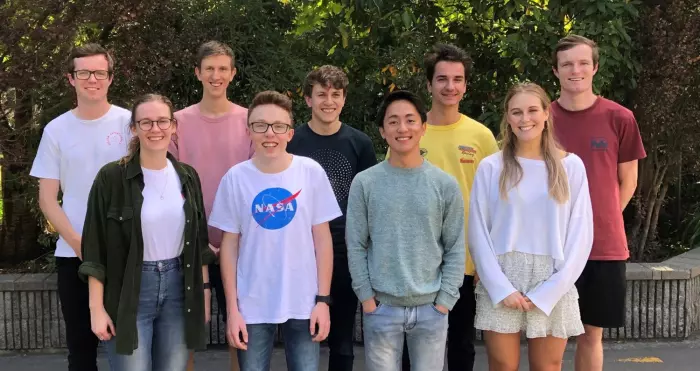The co-founder and chief executive of voicemail transcription startup Vxt says the company is pushing forward with its new product aimed at the legal and recruitment sector.
After its first capital raise of $600,000 last September, the company is amid a new funding round to grow its sales team and keep up with demand.
It is talking to investors in New Zealand, Australia, and the US. Adrian Pike, Founder of Rafferty’s Garden, Robert Rolls, CFO of Umbrellar Group, and James Powell, co-founder of Dawn Aerospace were prominent investors last time around.
Luke Campbell founded Vxt (that’s ‘vext’) with business partner Lucy Turner while still at the University of Canterbury as an app that transcribes voicemail and delivers it to users in text form.
He told BusinessDesk this Vxt Voicemail service has 10,000 users across New Zealand, Australia, Canada, the US, and the UK, but revenue margins for the service are low.
“We've expanded on that service by developing this calling functionality, basically becoming a phone service provider, similar to the likes of Spark or Vodafone, but a lot more focused on a particular on a few particular verticals.”
Vxt Call is aimed at law and recruitment professionals. It can record and transcribe calls, and Campbell said it can automate time entries and billable time so those professionals can keep track of work and bill their customers accordingly.
This data can automatically be uploaded to popular software such as JobAdder for recruiters, and the Actionstep legal management platform. There are also integrations with customer relationship management software and workplace apps like Slack.
Most impressively, Vxt Call uses direct dial in (DDI) tech to place calls associated with a phone number from a phone, laptop, or any device with an internet connection.
Campbell said competitors often rely on off-the-shelf products from companies like Twilio that virtualise phone numbers using application programming interfaces (APIs) but Vxt has built its own telephony stack.
“We’re the only startup in New Zealand that’s built the underlying core phone system technology,” he said.
“We’re focused on those verticals or those kinds of people because they tend to make the most phone calls, and our solution is all about solving the problems that come with making heaps and heaps of calls.”
He said using the service could save recruitment teams at least one hour per employee per week thanks to the time saved through automation and recording.
Vexed no more
Despite Vxt Call’s new direction, voicemail is still the bridge between the company’s products.
“Whilst the focus of the business is very much Vxt Call, Vxt Voicemail provides us with interesting value in the sense that the problem that people face with Vxt Call is greater the more phone calls they make.
“The problem people face with voicemail is you get more voicemail the more phone calls you make.”
Campbell said Vxt Call is now the business’ focus because it delivers 50-to-100 times more per user income than Vxt Voicemail. He said for a time the company wasn’t sure what its planned calling product was going to look like and he assumed it would be consumer focused.
When Vxt realised there was a risk of going to market with a product people didn’t want, the team interviewed over 100 current customers to see what they wanted from a business calling product.
“It allowed us to get a really deep understanding of the customers themselves, of how they talk and how they work, and the problems that they face.”
Campbell wouldn’t specify exact numbers but said Vxt Call has gained hundreds of customers since launching in March, the same month the company’s systems processed its one millionth phone call.
Pricing across both Vxt products is the same for consumers and business customers, but the company offers discounts for businesses on a case-by-case basis.
It uses Google technology to transcribe several languages, but otherwise the rest of the platform is developed in house.
Vxt has been part of the Google Cloud for startups program since 2019, which Campbell said won the company $150,000 in Google Cloud credit that helped them develop the business. He estimates Vxt has received $900,000 in funding thus far from a combination of capital raising, Google credit and competition winnings.
The company has recently been accepted onto the Startmate accelerator program, with a view to expanding its reach into Australia by tapping Startmate’s network of experienced business advisors.
Currently, it has six full-time employees but there are 16 on the books overall for various sales, developer, and market research roles.















